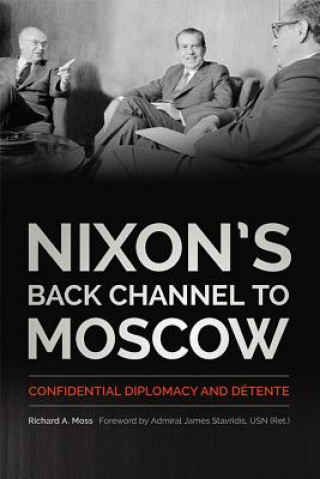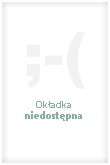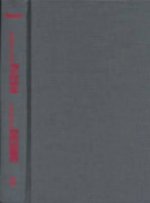
Kod: 11534188
Nixon's Back Channel to Moscow
Autor Richard A. Moss, James Stavridis
Most Americans consider détente-the reduction of tensions between the United States and the Soviet Union-to be among the Nixon administration's most significant foreign policy successes. The diplomatic back channel that national s ... więcej
- Język:
 Angielski
Angielski - Oprawa: Twarda
- Liczba stron: 418
Wydawca: The University Press of Kentucky, 2017
- Więcej informacji o książce

Zobacz książki o podobnej tematyce
-

Last Don
47.71 zł -10 % -

The World Before
81.87 zł -

Code of Federal Regulations, Title 24, Housing and Urban Development, PT. 0-199, Revised as of April 1. 2013
359.34 zł -

The Three Graces of Raymond Street
116.73 zł -

Dead Beyond the Fence: A Novel of the Zombie Apocalypse
78.43 zł -

Women and Gendered Violence in Canada
1534.95 zł -

Juliet and the Unexpected Surprise
33.01 zł
Podaruj tę książkę jeszcze dziś
- Zamów książkę i wybierz "Wyślij jako prezent".
- Natychmiast wyślemy Ci bon podarunkowy, który możesz przekazać adresatowi prezentu.
- Książka zostanie wysłana do adresata, a Ty o nic nie musisz się martwić.
Więcej informacji o Nixon's Back Channel to Moscow
Za ten zakup dostaniesz 127 punkty
 Opis
Opis
Most Americans consider détente-the reduction of tensions between the United States and the Soviet Union-to be among the Nixon administration's most significant foreign policy successes. The diplomatic back channel that national security advisor Henry Kissinger established with Soviet ambassador Anatoly Dobrynin became the most important method of achieving this thaw in the Cold War. Kissinger praised back channels for preventing leaks, streamlining communications, and circumventing what he perceived to be the US State Department's unresponsive and self-interested bureaucracy. Nixon and Kissinger's methods, however, were widely criticized by State Department officials left out of the loop and by an American press and public weary of executive branch prevarication and secrecy. Richard A. Moss's penetrating study documents and analyzes US-Soviet back channels from Nixon's inauguration through what has widely been heralded as the apex of détente, the May 1972 Moscow Summit. He traces the evolution of confidential-channel diplomacy and examines major flashpoints, including the 1970 crisis over Cienfuegos, Cuba, the Strategic Arms Limitations Talks (SALT), US dealings with China, deescalating tensions in Berlin, and the Vietnam War. Moss argues that while the back channels improved US-Soviet relations in the short term, the Nixon-Kissinger methods provided a poor foundation for lasting policy. Employing newly declassified documents, the complete record of the Kissinger-Dobrynin channel-jointly compiled, translated, annotated, and published by the US State Department and the Russian Foreign Ministry-as well as the Nixon tapes, Moss reveals the behind-the-scenes deliberations of Nixon, his advisers, and their Soviet counterparts. Although much has been written about détente, this is the first scholarly study that comprehensively assesses the central role of confidential diplomacy in shaping America's foreign policy during this critical era.
 Szczegóły książki
Szczegóły książki
217.59 zł
- Pełny tytuł: Nixon's Back Channel to Moscow
- Podtytuł: Confidential Diplomacy and Detente
- Autor: Richard A. Moss, James Stavridis
- Język:
 Angielski
Angielski - Oprawa: Twarda
- Liczba stron: 418
- EAN: 9780813167879
- ISBN: 0813167876
- ID: 11534188
- Wydawca: The University Press of Kentucky
- Waga: 756 g
- Wymiary: 162 × 306 × 2 mm
- Data wydania: 17. January 2017
Ulubione w innej kategorii
-

Dune
50.32 zł -3 % -

Haunting Adeline
125.47 zł -1 % -

Berserk Deluxe Volume 2
212.67 zł -1 % -

White Nights
10.94 zł -28 % -

Powerless
48.61 zł -11 % -

Atomic Habits
57.35 zł -28 % -

Dune Messiah
46.20 zł -3 % -

Berserk Deluxe Volume 3
217.79 zł -3 % -

One Day
34.25 zł -44 % -

Berserk Deluxe Volume 1
211.26 zł -2 % -

Iron Flame
60.97 zł -28 % -

Surrounded by Idiots
36.66 zł -28 % -

Harry Potter and the Prisoner of Azkaban (Minalima Edition)
169.97 zł -2 % -

Gravity Falls Journal 3
89 zł -

Heaven Official's Blessing: Tian Guan Ci Fu (Novel) Vol. 1
89.40 zł -

The Creative Act
102.66 zł -12 % -

Dune
47.21 zł -23 % -

Hunting Adeline
125.97 zł -4 % -

A Little Life
48.61 zł -11 % -

Children of Dune
46.61 zł -2 % -

Heaven Official's Blessing: Tian Guan Ci Fu (Novel) Vol. 2
77.55 zł -14 % -

Bungo Stray Dogs, Vol. 8 (light novel)
65.39 zł -4 % -

Percy Jackson and the Olympians 5 Book Paperback Boxed Set
126.67 zł -34 % -

Solo Leveling, Vol. 1
86.49 zł -3 % -

The Prisoner's Throne
44.80 zł -12 % -

Court of Thorns and Roses
33.85 zł -31 % -

Cry Baby Coloring Book
47.21 zł -1 % -

Fourth Wing
71.72 zł -15 % -

Icebreaker
37.46 zł -21 % -

Berserk Deluxe Volume 6
217.79 zł -3 % -

Avatar, the Last Airbender: The Kyoshi Novels (Box Set)
165.75 zł -4 % -

The 48 Laws of Power
98.24 zł -14 % -

House of Leaves
123.76 zł -3 % -

Twisted Lies
36.66 zł -28 % -

Dune Messiah
49.52 zł -13 % -

No Longer Human
56.35 zł -8 % -

48 Laws Of Power
60.97 zł -28 % -

Twisted Games
35.05 zł -31 % -

Caraval Paperback Boxed Set
175.10 zł -3 % -

Solo Leveling, Vol. 2
74.83 zł -23 % -

Open Circuits
168.97 zł -2 % -

Berserk Deluxe Volume 5
223.72 zł -

Heaven Official's Blessing: Tian Guan Ci Fu (Novel) Vol. 3
78.05 zł -13 % -

Berserk Deluxe Volume 4
208.35 zł -3 % -

Court of Mist and Fury
33.85 zł -31 % -

SOLO LEVELING V08
88.20 zł -1 % -

English File Upper Intermediate Multipack A (4th)
92.82 zł -1 % -

CHAINSAW MAN V14
43.49 zł -21 % -

Before the Coffee Gets Cold
31.54 zł -31 %
zadowolonych klientów
Od roku 2008 obsłużyliśmy wielu miłośników książek, ale dla nas każdy był tym wyjątkowym.
Copyright! ©2008-24 libristo.pl Wszelkie prawa zastrzeżonePrywatnieCookies



 21 milionów książek
21 milionów książek Dostawa 10.99 zł
Dostawa 10.99 zł (32) 444 93 66 (8-15.30h)
(32) 444 93 66 (8-15.30h)